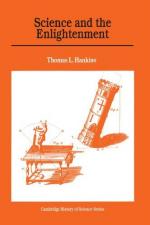
|
| Name: _________________________ | Period: ___________________ |
This quiz consists of 5 multiple choice and 5 short answer questions through Chapter 1, The Character of the Enlightenment.
Multiple Choice Questions
1. In 1688, Fontenelle wrote a treatise on the nature of the eclogue or ________.
(a) Pastoral poem.
(b) Limerick.
(c) Sonnet.
(d) Haiku.
2. Which German metaphysician, when asked in 1785 if he believed he lived in an enlightened age, answered, "No, we are living in an age of enlightenment."
(a) Maupertuis.
(b) Chatelet.
(c) Diderot.
(d) Immanuel Kant.
3. According to Chapter 1, the noble Houyhnhnm in Jonathan Swift's ________ "thought Nature and Reason were sufficient guides for a reasonable animal, as we pretended to be, in showing us what we ought to do, and what to avoid."
(a) A Modest Proposal.
(b) Gulliver's Travels.
(c) The Day of Judgement.
(d) Twelve Articles.
4. By what name did natural philosophers want to be known as, according to the narrator in Chapter 1?
(a) Masters.
(b) Men of Honor.
(c) Men of Letters.
(d) Professors.
5. In Chapter 1, who claimed that his "principle of least action" proved the existence of God?
(a) Malebranche.
(b) Leibniz.
(c) Pierre-Louis-Moreau de Maupertuis.
(d) Newton.
Short Answer Questions
1. Madame du Chatelet supported the Leibnizian theory of ________ because it gave a better account of free will.
2. What area of science included astronomy, optics, statics, hydraulics, gnomonics, geography, horology, navigation, surveying, and fortification?
3. Chapter 1 states that in 1700, ________ first talked about an "almost complete revolution in geometry" that had begun with the analytic geometry of Descartes.
4. According to the narrator in Chapter 1, who was one of the originators of the mechanical philosophy who believed there were no forces or powers in matter?
5. Who coined the expression "Scientific Revolution," according to the narrator in Chapter 1?
|
This section contains 261 words (approx. 1 page at 300 words per page) |

|




